Imagine you are running a business, and you need to get a product out to customers. You need to build the product, make sure it works well, and deliver it quickly. Traditionally, this process was slow and manual, often leading to delays, mistakes, and poor customer experiences. This is where DevOps Engineers and Cloud Engineers come in as a solution to these problems, helping businesses run more efficiently in today’s fast-paced digital world.
If you'd like to learn more about DevOps, read the following.
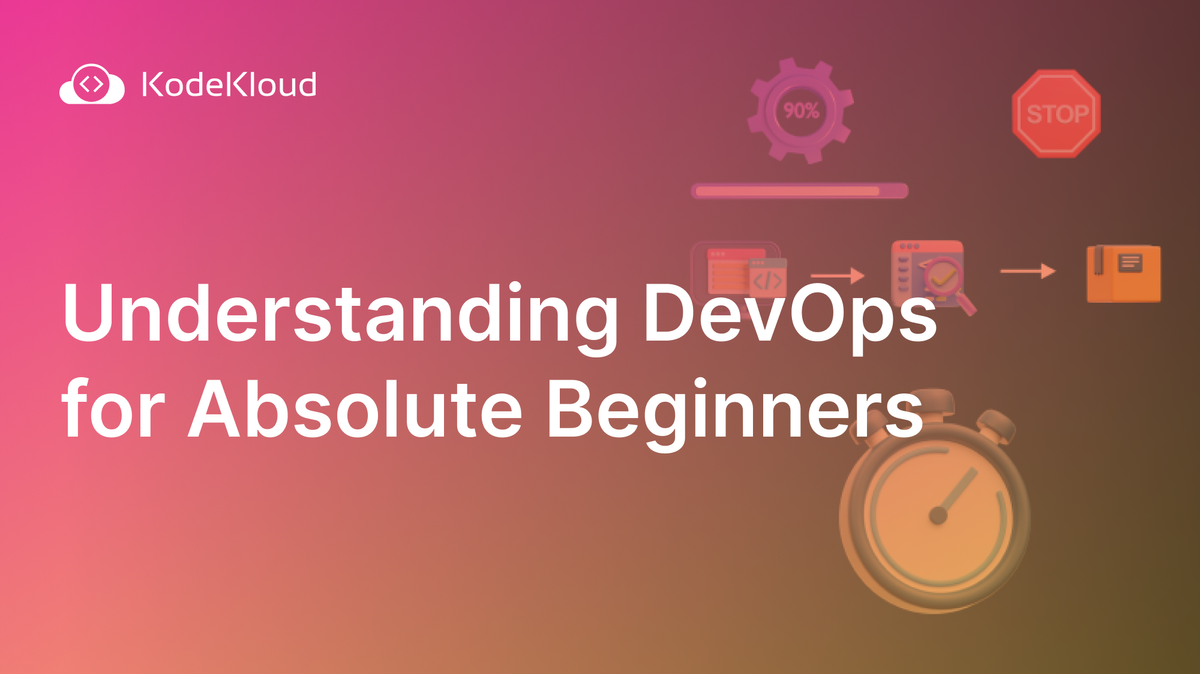
Before we dive into their roles, think about something you might already know: running a website. For it to work smoothly, you need two things: 1) the code that runs the website, and 2) the servers and infrastructure that support it, like storage and databases. This is exactly what DevOps and Cloud Engineers focus on. DevOps Engineers help get the code out quickly and without errors, while Cloud Engineers make sure the infrastructure can handle the traffic and stay secure.
What Do DevOps Engineers and Cloud Engineers Do?
At a basic level, DevOps Engineers focus on improving the process of building, testing, and releasing software quickly and efficiently, primarily through automation. Cloud Engineers, on the other hand, design and manage the infrastructure that supports these software applications, using platforms like AWS, Azure, and Google Cloud.
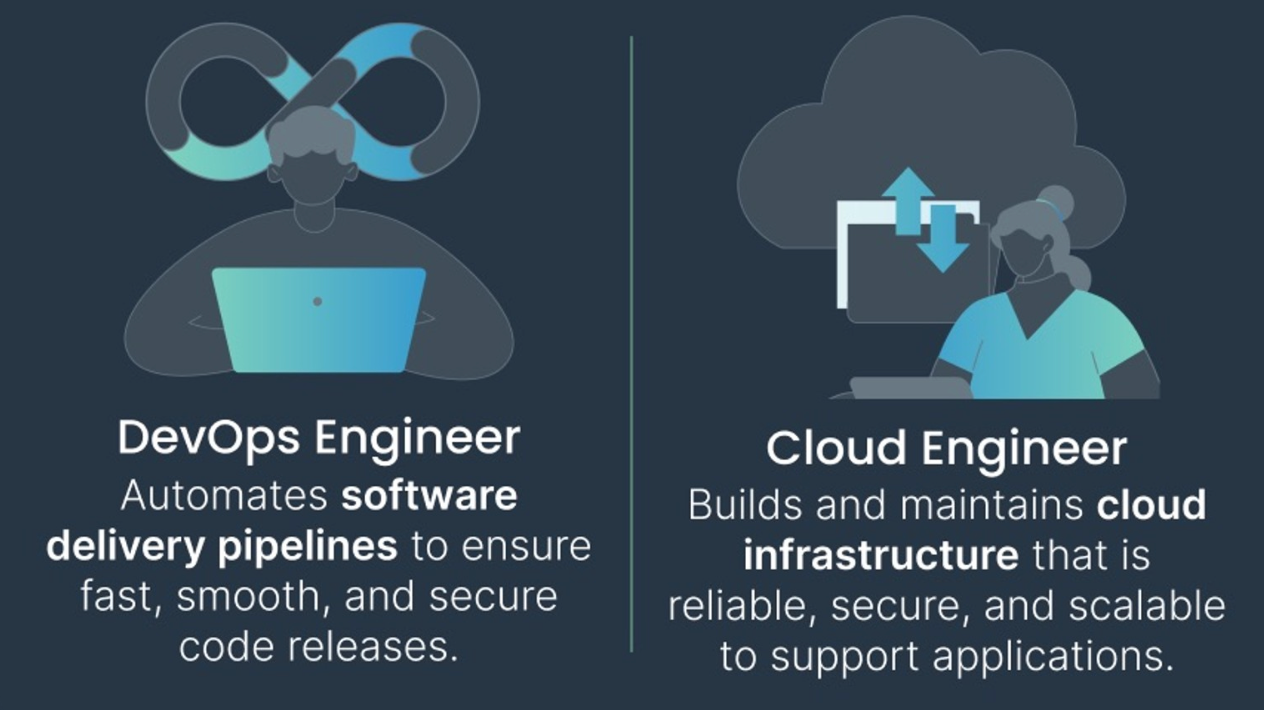
As cloud technologies have become more widespread, companies are increasingly hiring engineers with skills in both fields, leading to blended job roles. While this has blurred the lines between DevOps and Cloud Engineering, each role still has unique goals and tasks that are worth exploring in detail.
You may also be interested in reading about cloud-native architecture.
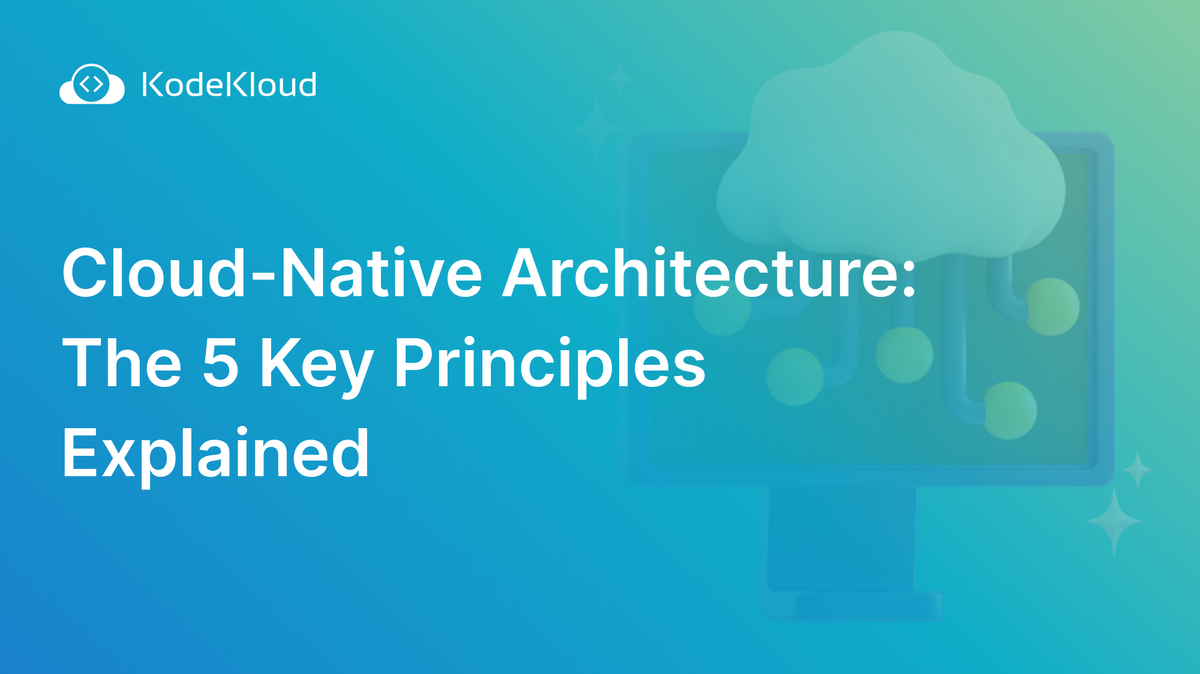
Why Do These Roles Overlap?
Originally, DevOps and Cloud Engineering were two separate areas of expertise. However, with the rise of cloud computing, engineers often need skills from both fields. For instance, DevOps Engineers now regularly work with cloud platforms to ensure seamless integration between development pipelines and the cloud infrastructure. Similarly, Cloud Engineers are often responsible for automating infrastructure provisioning and setup, a task that traditionally fell under the DevOps umbrella.
This overlap has led to new job titles and roles that combine skills from both disciplines, reflecting the need for engineers who can manage both software deployment and cloud infrastructure.
The Core Objectives of DevOps Engineers and Cloud Engineers
To understand the distinction between these roles, let’s look at the primary objectives that each role fulfills.
DevOps Engineer’s Goal: Streamlining Software Development and Deployment
A DevOps Engineer aims to make the software development process as fast and error-free as possible. They do this by automating tasks that would otherwise require manual intervention, such as testing and deploying code.
Key responsibilities include:
- Automating the Software Delivery Pipeline: DevOps Engineers build pipelines that automatically test and deploy code changes. This process, called CI/CD (Continuous Integration and Continuous Delivery), ensures that updates are released quickly and without issues.
- Monitoring Applications After Deployment: Once the software is live, DevOps Engineers monitor its performance using tools like Prometheus or Grafana to catch any issues and fix them immediately.
- Collaboration Between Development and Operations Teams: DevOps Engineers facilitate better communication between developers (who create the software) and operations teams (who manage the infrastructure). They introduce practices and tools that streamline collaboration.
Cloud Engineer’s Goal: Building and Managing Secure, Scalable Cloud Infrastructure
A Cloud Engineer is responsible for setting up and managing the cloud infrastructure that applications need to run smoothly. Their main goal is to ensure the system is reliable, secure, and capable of scaling up to meet increasing demand.
Key responsibilities include:
- Designing Cloud Infrastructure: Cloud Engineers work with platforms like AWS, Azure, or Google Cloud to build the virtual machines, databases, and networks that host applications.
- Ensuring Security and Stability: They put measures in place to secure the cloud environment, making sure it can handle large volumes of traffic and is protected from security threats.
- Optimizing Resources: Cloud Engineers ensure that resources in the cloud environment are used efficiently to reduce costs while maintaining high performance.
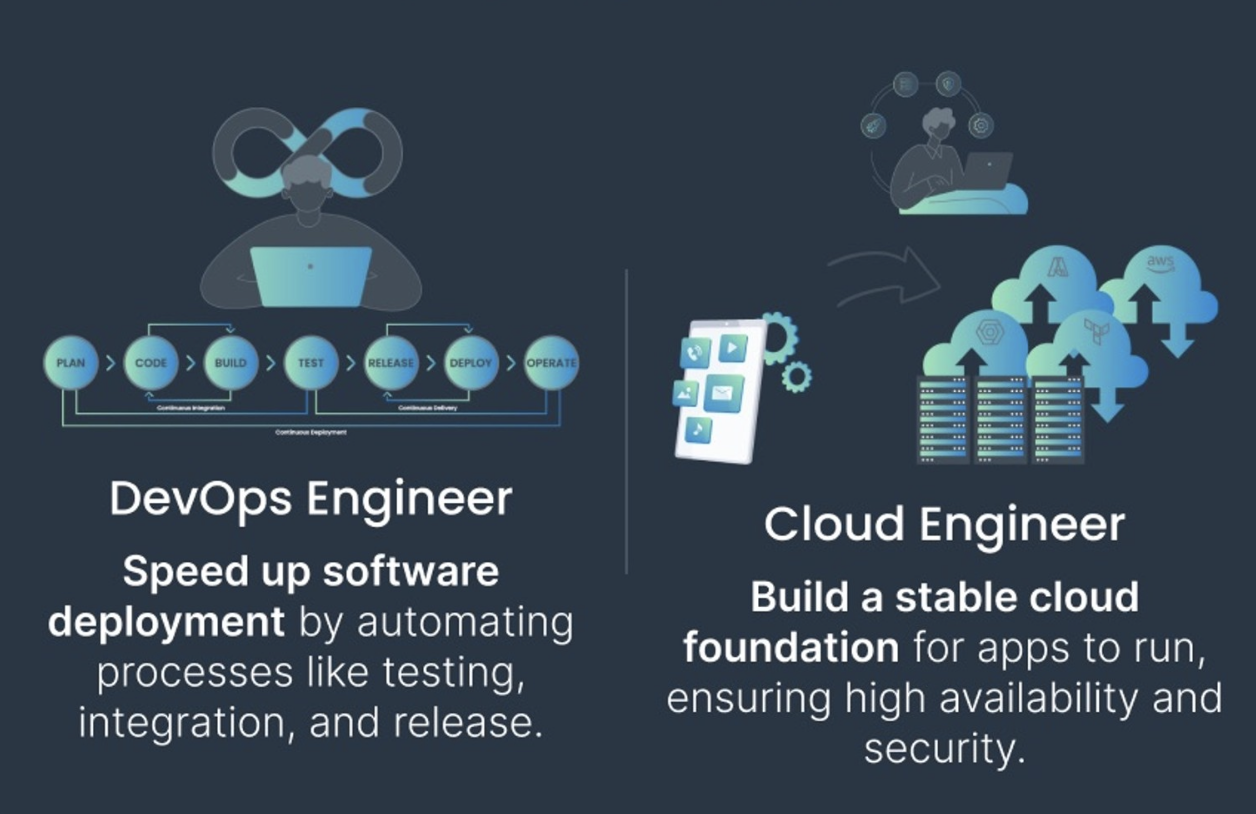
The Need for Cloud Engineers to Master Cloud-Specific Tools
Managing modern cloud environments is complex. Platforms like AWS and Azure offer a wide variety of services—from databases to machine learning tools—and each requires specialized knowledge to configure properly.
For example:
- AWS offers tools like Elastic Kubernetes Service (EKS) for managing containerized applications and Elastic Container Registry (ECR) for storing container images.
- Azure and Google Cloud offer similar services but with different configurations and setups, which means Cloud Engineers must become experts in the specific platform they’re using.
Cloud Engineer Responsibilities in Detail
- Configuring Cloud Services for Reliability: Cloud Engineers ensure the services they set up can handle high traffic and remain secure, even during unexpected events like system failures or cyberattacks.
- Platform-Specific Expertise: Since each cloud provider has unique features, Cloud Engineers often specialize in a single platform. For instance, an AWS Cloud Engineer will be highly proficient in tools like S3 (storage) and EC2 (virtual servers), while an Azure Cloud Engineer will focus on tools like Azure Virtual Machines and Blob Storage.
- Using Infrastructure as Code (IaC): Cloud Engineers use Infrastructure as Code (IaC) tools like Terraformand AWS CloudFormation to automate the provisioning and management of infrastructure. This makes it easier to replicate setups across environments and ensures consistency.
If you want to become an expert in AWS, follow the AWS Certified Developer Associate course and take the certification exam.

The Need for DevOps Engineers to Master Automation and DevOps-Specific Tools
DevOps Engineers must stay up to date with the latest tools to effectively automate software development and deployment. In modern software development, it’s essential to have continuous integration, testing, and deployment, and this can only be achieved through mastering various DevOps tools.
For example:
- Jenkins and GitLab CI are popular tools for automating code integration, testing, and deployment.
- Docker and Kubernetes are critical for managing and deploying applications in containers.
- Ansible, Chef, and Puppet allow for automation in configuration management, making infrastructure easier to set up and maintain.
DevOps Engineers ensure that development processes are streamlined, and they play a key role in making software deployment faster and more efficient.
DevOps Engineer Responsibilities in Detail
- Automating the Software Delivery Pipeline: DevOps Engineers build CI/CD pipelines that automatically test and deploy code changes, making the development process faster and less error-prone. Using tools like Jenkins or CircleCI, they ensure that every piece of code is properly tested and deployed without human intervention.
- Ensuring System Stability: Once software is deployed, DevOps Engineers monitor its performance using tools like Prometheus and Datadog. They are responsible for ensuring the application runs smoothly and for quickly resolving any issues that arise.
- Facilitating Team Collaboration: DevOps Engineers work to improve collaboration between development, operations, and quality assurance teams. They implement tools and practices that allow teams to communicate better, using platforms like Git for version control and Slack for real-time collaboration.
- Using Infrastructure as Code (IaC): Similar to Cloud Engineers, DevOps Engineers use IaC tools like Terraform or AWS CloudFormation to automate the provisioning of infrastructure. This ensures that environments can be reproduced and maintained efficiently across development, testing, and production stages.
Key Differences Between DevOps Engineers and Cloud Engineers
Although DevOps Engineers and Cloud Engineers both work toward improving system performance and efficiency, they approach these goals from different angles.
- DevOps Engineers focus on automating the software development process. Their main responsibility is to ensure that applications are developed, tested, and released quickly and reliably. This involves setting up automated pipelines that handle everything from integration to deployment, reducing the need for manual steps and speeding up the release cycle.
- Cloud Engineers, on the other hand, are responsible for designing and managing the infrastructure on which those applications run. Their job is to ensure that the cloud environment is secure, scalable, and capable of handling the demands of the applications that will run on it.
In short, DevOps Engineers focus on the process of delivering software, while Cloud Engineers focus on the environment that supports that software.
However, these roles frequently overlap, especially as more companies rely on cloud platforms to host their applications. While the goals differ—DevOps aims for rapid, error-free software delivery, and Cloud Engineering ensures stable, secure cloud infrastructure—their tasks intersect in meaningful ways.
How DevOps and Cloud Engineers Collaborate
Even though DevOps Engineers and Cloud Engineers have different primary objectives, they must collaborate closely to achieve smooth, automated software deployment. The cloud infrastructure that Cloud Engineers build and maintain is the foundation for the automated processes that DevOps Engineers implement.
One key point of overlap is during the deployment of software. For instance, when a company hosts applications on the cloud, DevOps Engineers are responsible for automating the release pipeline. However, for this to succeed, the cloud infrastructure must be reliable, secure, and properly configured—a task managed by the Cloud Engineer. This infrastructure includes virtual servers, networks, and storage, which must be fine-tuned to support automated testing, deployment strategies (such as blue-green or canary deployments), and continuous integration.
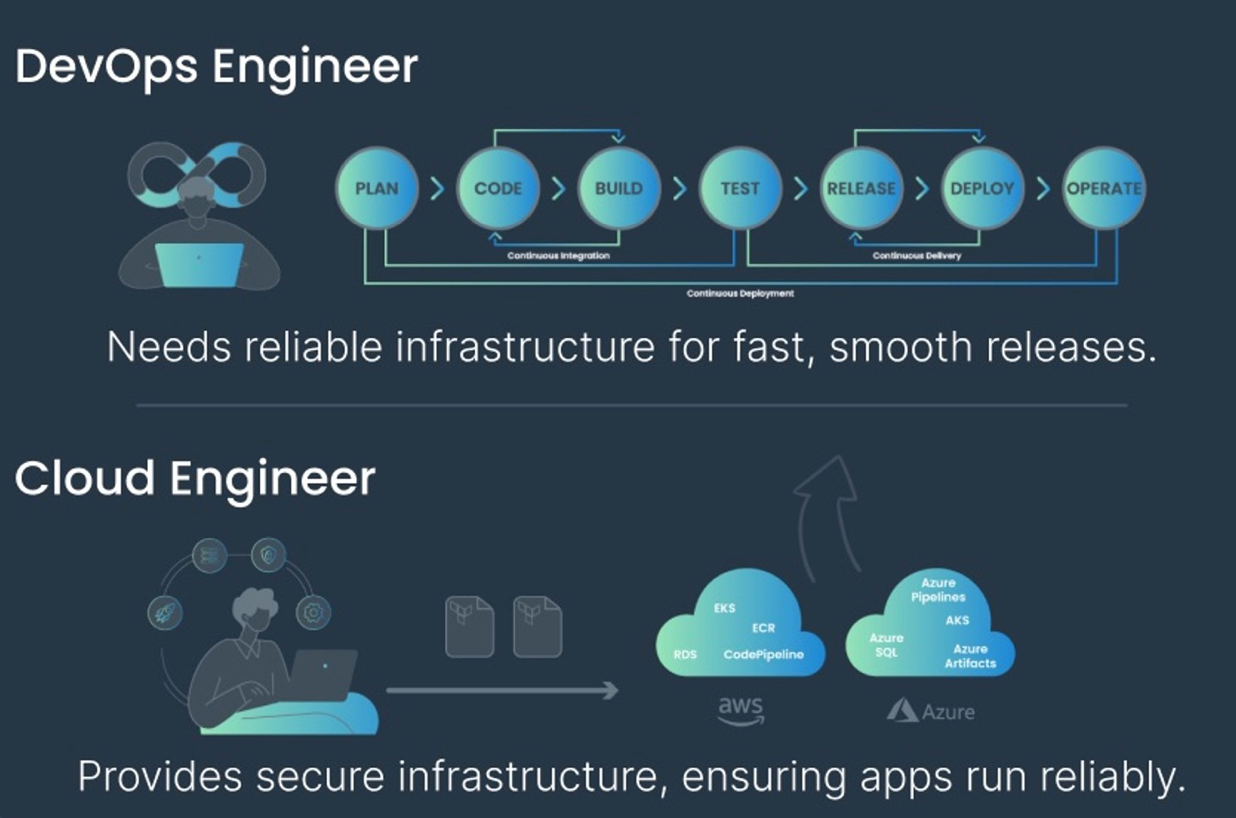
Additionally, infrastructure management is another area of shared responsibility. Cloud Engineers set up the cloud environments, but DevOps Engineers ensure that these environments remain stable by using monitoring tools and infrastructure as code (IaC) solutions to manage and automate infrastructure updates. For example, if a company uses Kubernetes clusters hosted on AWS, the Cloud Engineer sets up the cluster, while the DevOps Engineer ensures that the application runs smoothly on it, is correctly configured for security, and can be scaled or backed up when needed.
If you're a DevOps Engineer or Cloud Engineer, you'll appreciate the value of Kubernetes knowledge. Start with the KCNA course, then take the CKS course from KodeKloud, and get certified!
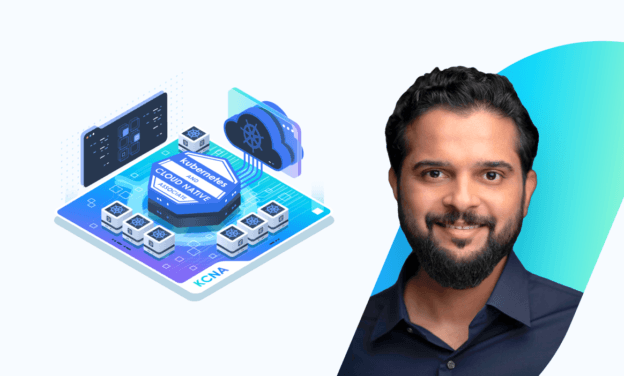
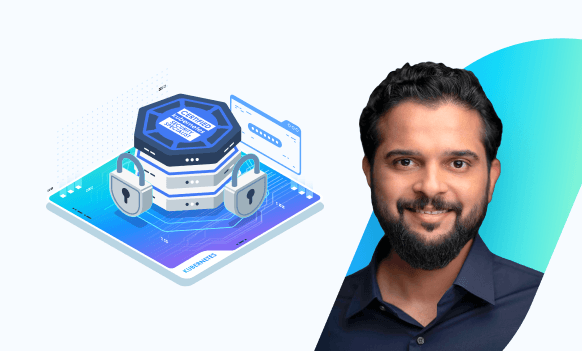
In organizations where both roles are clearly defined, Cloud Engineers handle the infrastructure’s day-to-day maintenance, ensuring that it can support the application workload. Meanwhile, DevOps Engineers build automated processes on top of that infrastructure, enabling faster application deployment and more efficient operations.
In many modern setups, the collaboration between these roles is essential to delivering robust, fast, and secure cloud-based applications. Both engineers work together to ensure that infrastructure and automation are perfectly aligned, making it possible for businesses to scale their software and infrastructure simultaneously.
Download the infographic for a simplified overview of this information.



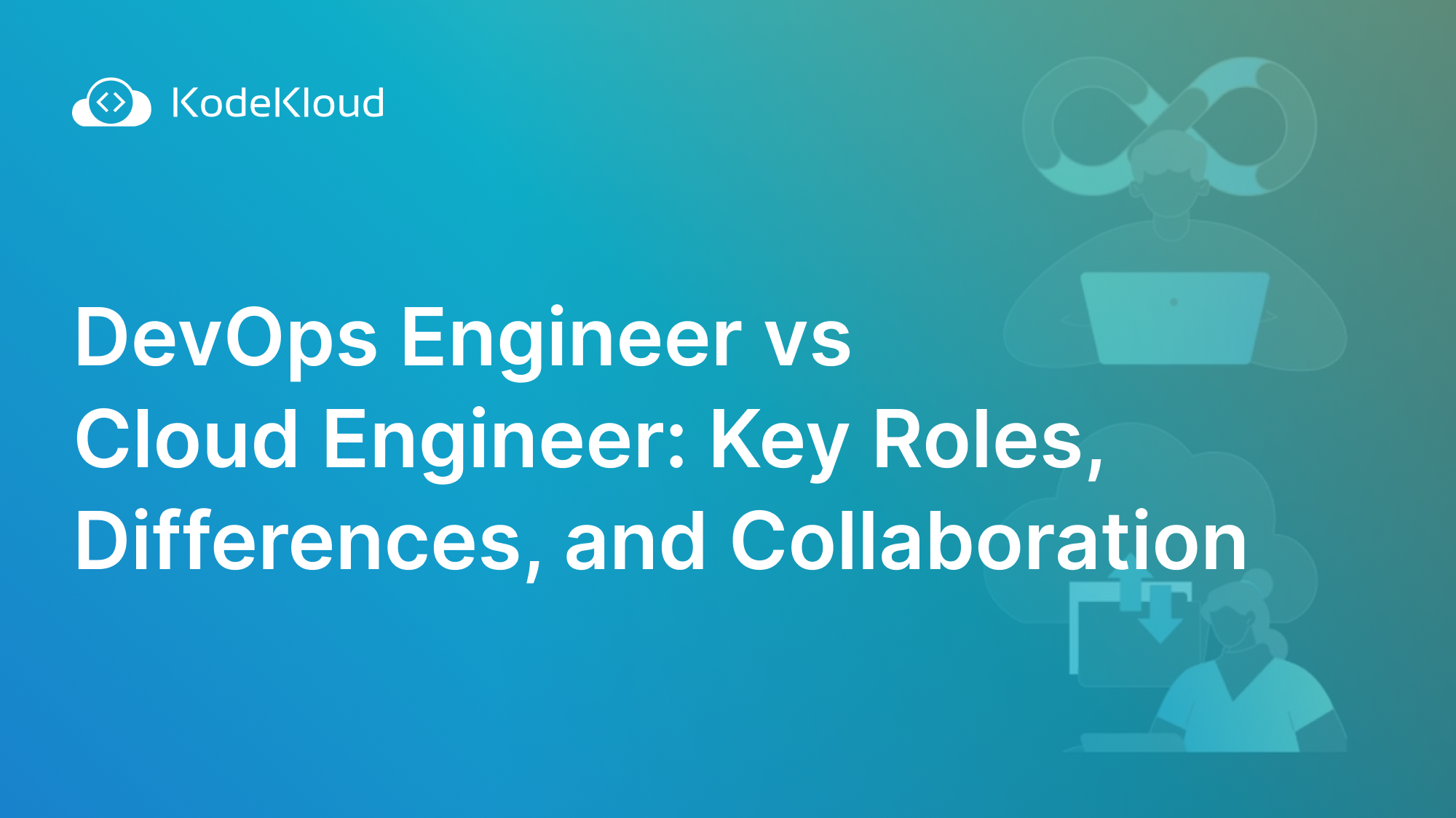





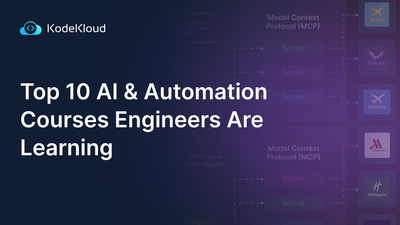
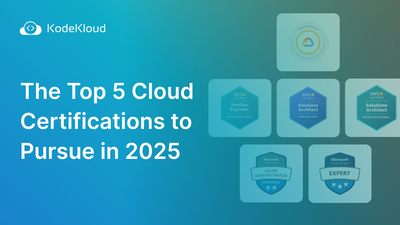




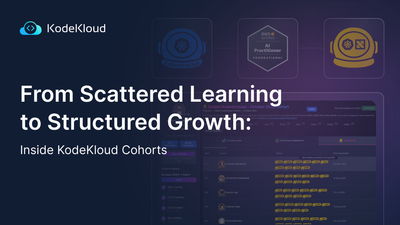
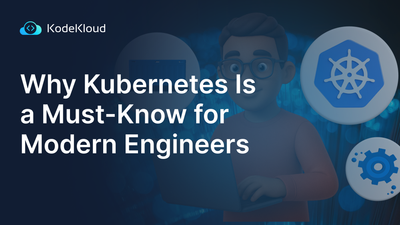

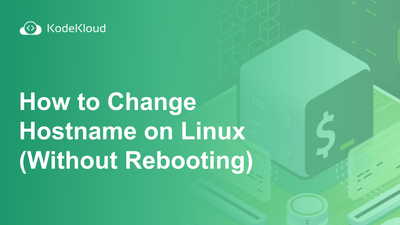

Discussion